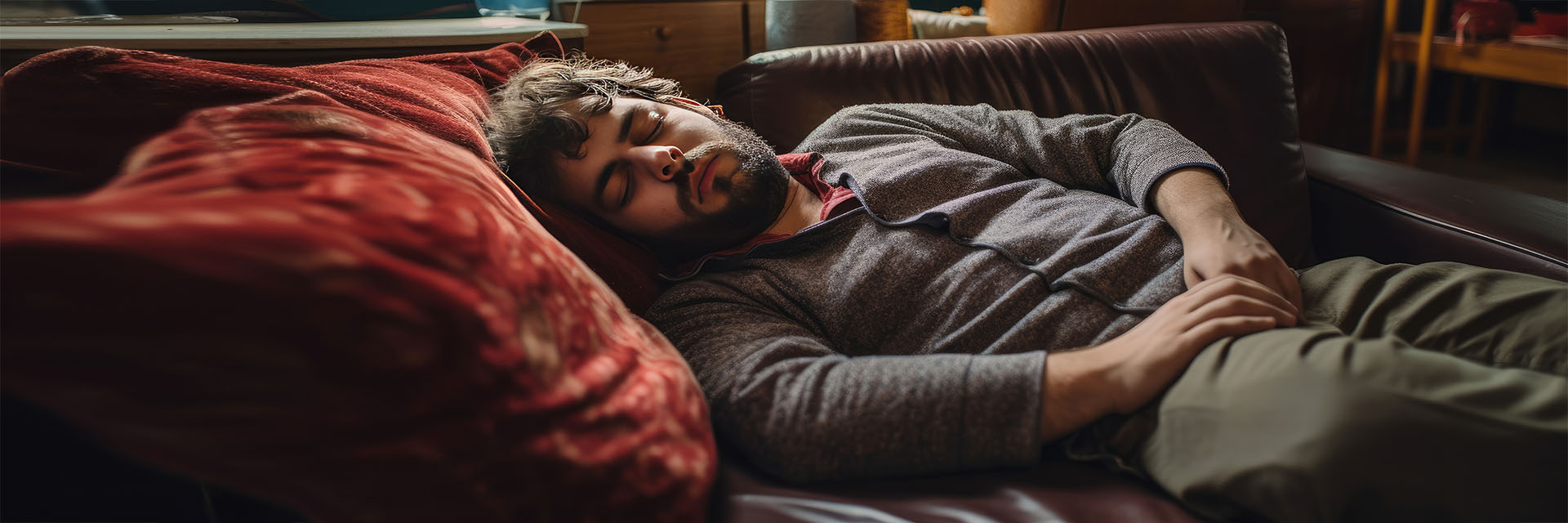The idea that eating turkey makes you sleepy because of the tryptophan it contains is a common myth. And if you regularly battle to keep your eyes open after your Thanksgiving feast every year, you may fully believe in its powers. However, experts say there isn’t enough of the amino acid in turkey to make you nod off. But there are some other components of your meal that may be lending a helping hand.
Understanding Tryptophan
Tryptophan is an amino acid that helps create a chemical called serotonin in your brain, which is important for good sleep. But here's the thing: turkey doesn't have more tryptophan than other meats like chicken and beef. In fact, some foods like nuts and cheeses have even more tryptophan than turkey does.
Plus, the effects of tryptophan are kind of restrained when it's mixed up with other amino acids, and turkey happens to have a bunch of those amino acids.
Taking a Wider Look
So, if it's not the tryptophan in turkey that makes you sleepy, what is it? One possibility is that it's simply the large amount of food that you consume during Thanksgiving dinner. With potatoes, stuffing, yams, rolls, and pie on top of that turkey, you're consuming not just a lot of food at one time, you’re eating a lot of carbs, which can make you feel extra tired after your meal.
Carbs can make you feel tired after a meal due to the way they affect your blood sugar levels and the release of certain hormones in your body. When you consume carbohydrates, they are broken down into sugar (glucose) in your digestive system and then enter your bloodstream. This causes a rapid increase in your blood sugar levels. In response to the rise in blood sugar, your body releases insulin, a hormone that helps regulate blood sugar by allowing glucose to enter your cells for energy or storage.
The initial surge in blood sugar and the subsequent release of insulin can lead to a rapid drop in blood sugar levels, often referred to as a "sugar crash." This drop in blood sugar can make you feel tired, sluggish, and even irritable. It's because your body is essentially experiencing a decrease in the available energy supply, and this can result in feelings of fatigue.
The type of carbohydrates you consume also plays a role in how they affect your energy levels. Simple carbohydrates, such as those found in sugary foods like pumpkin or pecan pie and candied yams, and refined grains like dinner rolls and stuffing, can cause more pronounced fluctuations in blood sugar levels and are more likely to lead to post-meal tiredness.
Apart from tryptophan, the carb overload, and the sheer amount of food consumed on Thanksgiving, there are other factors that can make you feel sleepy after the meal. While we often look forward to Thanksgiving and all the preparations that go into it — like shopping, cooking, cleaning, and traveling — it can also be a bit stressful. Many folks like to enjoy a glass of wine or another alcoholic drink with their holiday feast, and alcohol is known to make you feel drowsy. This can compound the tiredness you might already be experiencing from holiday preparations.
Avoiding the Thanksgiving Nap
While indulging in a post-Thanksgiving nap may be a tradition for some, it can be less enjoyable when you feel overly stuffed and too tired to enjoy the day.
If you'd like to steer clear of post-meal exhaustion, here are some tips:
- Opt for small, nutritious meals earlier in the day. Don't start with the main Thanksgiving feast, as this is a recipe for overindulgence.
- Serve yourself small portions at first, and if desired, go back for seconds on your favorites.
- Eat slowly and take breaks to check how full you are. This allows your brain to catch up with your stomach's signals of fullness.
- When you feel full, stop eating. You can always ask for a small portion of leftovers to enjoy the next day, so you don't feel compelled to finish a large serving all at once.
- After the meal, take a walk outside to aid in the digestion of your food.
In summary, the idea that the tryptophan in turkey makes you sleepy is purely a Thanksgiving myth. While tryptophan is an amino acid that is associated with healthy sleep, there is no more of it in turkey than in other common meats, and its effects are limited in the presence of other amino acids. Instead, it's likely that the large amount of food and alcohol consumption during Thanksgiving dinner are the main culprits behind post-meal drowsiness.

